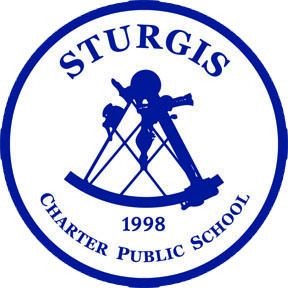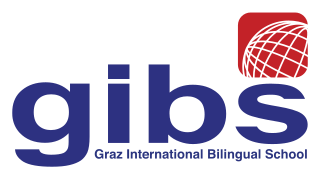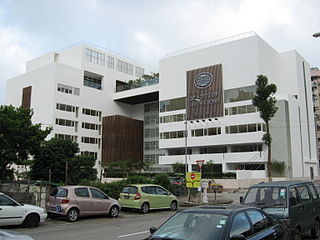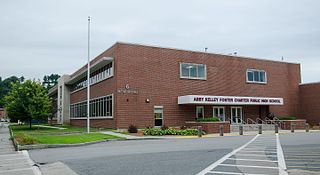Related Research Articles
UWC Mahindra College is a pre-university international boarding school, located 40 km (25 mi) west of Pune in Maharashtra, India. The college is a two-year programme with about 240 full-time boarders from around 70 countries, and follows the International Baccalaureate (IB) Diploma Program (DP). It is one of the 18 United World Colleges. The school was established in 1997 with the support of Harish Mahindra and Anand Mahindra of the Mahindra Group.

The Sturgis Charter Public School is a dual-campus charter school located in the village of Hyannis, Massachusetts, United States. The school received its charter in February 1998 and opened in September for the 1998–1999 academic year with 162 freshman, 15 faculty and staff, a newly renovated facility, and a $1.2 million budget. The school philosophy is International Baccalaureate for all students.

Harry Ainlay High School is a high school located in Edmonton, Alberta, Canada, in the Royal Gardens neighbourhood, south of Whitemud Drive on 111 Street. The school is operated by the Edmonton Public School System and has a wide variety of educational opportunities for students, including full French Immersion instruction, the International Baccalaureate Program, Career and Technology Studies, and Registered Apprenticeship programs. The school has an enrollment of 2,722 students

Copenhagen International School (CIS) is an international, co-educational day school located in the Copenhagen metropolitan area, Denmark. It has around 930 students of over 80 nationalities. English is the primary language of instruction. CIS offers an educational program from pre-kindergarten through grade 12 for students of all nationalities. The school year comprises four quarters, from mid-August through mid-June. Copenhagen International School is designed by C.F. Møller Architects.
The International Baccalaureate Diploma Programme (IBDP) is a two-year educational programme primarily aimed at 16-to-19-year-olds in 140 countries around the world. The programme provides an internationally accepted qualification for entry into higher education and is recognized by many universities worldwide. It was developed in the early-to-mid-1960s in Geneva, Switzerland, by a group of international educators. After a six-year pilot programme that ended in 1975, a bilingual diploma was established.
The Group 3: Individuals and societies subjects of the IB Diploma Programme consist of ten courses offered at both the Standard level (SL) and Higher level (HL): Business Management, Economics, Geography, Global Politics, History, Information technology in a global society (ITGS), Philosophy, Psychology, Social and cultural anthropology, and World religions. There is also a transdisciplinary course, Environmental systems and societies, that satisfies Diploma requirements for Groups 3 and 4.
The Group 1: Studies in language and literature subjects of the IB Diploma Programme refer to the student's first language. Three courses are available: Language A: literature, Language A: language and literature and an interdisciplinary subject, Literature and performance. Students who complete two group 1 subjects, or complete a group 3 or 4 subject that is of a different language of the group 1 subject taken by the candidate, are eligible to be awarded a bilingual IB Diploma on the condition that the candidate obtains a level 3 or greater in both subjects.
The Group 4: Sciences subjects of the International Baccalaureate Diploma Programme comprise the main scientific emphasis of this internationally recognized high school programme. They consist of seven courses, six of which are offered at both the Standard Level (SL) and Higher Level (HL): Chemistry, Biology, Physics, Design Technology, and, as of August 2024, Computer Science is offered as part of the Group 4 subjects. There are also two SL only courses: a transdisciplinary course, Environmental Systems and Societies, that satisfies Diploma requirements for Groups 3 and 4, and Sports, Exercise and Health Science. Astronomy also exists as a school-based syllabus. Students taking two or more Group 4 subjects may combine any of the aforementioned.
Luther College is a university college and high school located in Regina, Saskatchewan, Canada. The university campus of Luther College is located on the campus of the University of Regina and serves as a federated college of the university. The high school is located at 1500 Royal Street. There are approximately 1000 students and 300 employees at Luther College with an approximately $20.1M budget across both campuses. As a federated college, Luther College is administratively and financially independent, but academically integrated with the University of Regina. Luther students will earn a University of Regina degree when they graduate. University of Regina.

Vienna International School (VIS) is a non-profit international school in Vienna, Austria. The school was built to accommodate the children of United Nations (UN) employees and diplomats when the UN decided to locate one of its offices in Vienna, and it remains affiliated to the UN. About 50% of students are children of UN employees and receive education grants, while much of the remaining students are children mainly of embassy staff and company staff. The school has an enrollment of 1400 students, from pre-primary to twelfth grade.
The Group 5: Mathematics subjects of the IB Diploma Programme consist of two different mathematics courses, both of which can be taken at Standard Level (SL) or Higher Level (HL). To earn an IB Diploma, a candidate must take either Mathematics Applications and Interpretation (SL/HL) or Mathematics Analysis and Approaches (SL/HL), as well as satisfying all CAS, TOK and EE requirements.
The Group 6: The Arts subjects of the International Baccalaureate Diploma Programme consist of five courses at both Standard Level (SL) and Higher Level (HL): Dance, Music, Theatre, Visual Arts, and Film. The transdisciplinary course Literature and Performance is also available at Standard Level. Students seeking the IB Diploma may substitute courses from the other five Subject Groups instead of taking a Group 6 course. A school-based syllabus devised by an IB World School, as approved and externally moderated by the IB, may also form the basis for a course taken in place of a Group 6 course.

The Toronto French School (TFS), founded in 1962, is an independent, bilingual, co-educational, non-denominational school in Toronto, Ontario, Canada. Charles III, as King of Canada, is the royal patron of the school. The school rebranded in 2011 to become TFS – Canada's International School.
Cypress Creek High School is located in Orlando, Florida, and serves students in grades 9 through 12.

St. Gilgen International School (StGIS) is a co-educational boarding and day school for students between the ages of 9 and 18. The school offers a primary and middle school curriculum leading to the highly regarded International Baccalaureate Diploma Programme qualification in the final two years. The language of instruction is English.

The Graz International Bilingual School (GIBS) is an Austrian bilingual (English/German) university preparatory semi-independent charter school Gymnasium in Graz, Austria. The school mainly focuses on languages, offering German, English, Russian, Latin, French and Spanish. Students graduate with the Austrian Matura, the IB Diploma or with both, assuming that they meet the criteria necessary.

The School of the Nations is a Baháʼí-inspired school located in Taipa, Macau, owned by the Badi Foundation.

Abby Kelley Foster Charter Public School is a K–12 school located at 10 New Bond St., Worcester, Massachusetts, United States in former Heald Machine Company buildings. The school was founded in 1998.

Ritsumeikan Uji Junior and Senior High School (立命館宇治中学校・高等学校) is a private school located in the city of Uji south of Kyoto, Japan. The high school opened in 1994 and the middle school opened in 2003. It is currently one of four junior and senior high schools affiliated with Ritsumeikan University. The Ritsumeikan family of schools also includes Ritsumeikan Asia Pacific University, located in Beppu, and Ritsumeikan Primary School, located in north Kyoto.

Island School is a co-educational international school located on the Mid-levels, Hong Kong. Established in 1967, it is a founding member of the English Schools Foundation. The school has been accredited by international organisations such as the Council of International Schools and the Western Association of Schools and Colleges. The school currently houses over 1,200 students across 33 nationalities.
References
- Schools' Guide to the Diploma Programme (PDF). Geneva, Switzerland: International Baccalaureate Organization. 2002. Archived from the original (PDF) on 2009-12-29. Retrieved 3 Jul 2009.